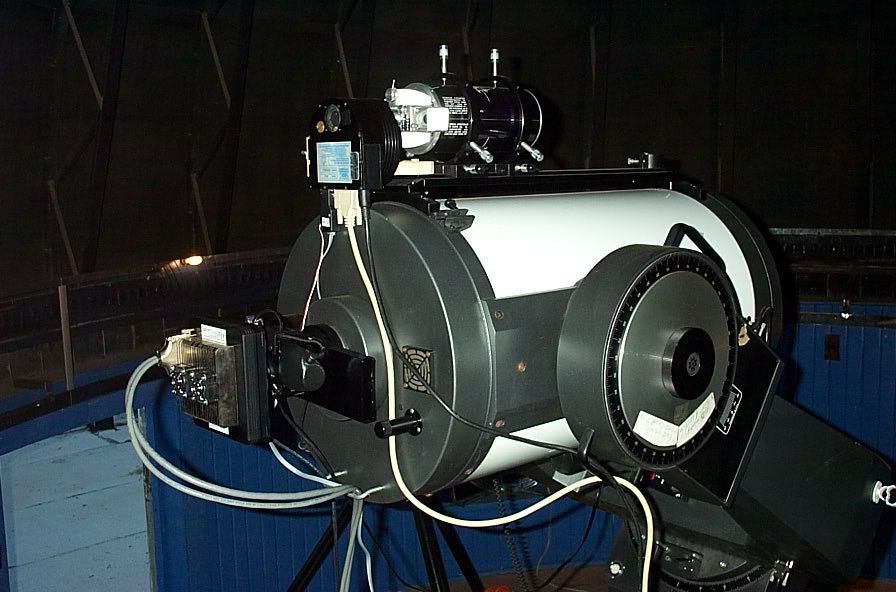
GLOBE at Night 2009
Message boards :
Cafe MilkyWay :
GLOBE at Night 2009
Message board moderation
| Author | Message |
|---|---|
 Mary MarySend message Joined: 11 Oct 08 Posts: 32 Credit: 281,582 RAC: 0 |
Here's a copy of an email I received from the American Astronomical Society just in case anyone else is interested in participating. My dot is already on the map for tonight. SHED LIGHT ON LIGHT POLLUTION! JOIN THE GLOBE AT NIGHT CAMPAIGN, 16-28 MARCH! More than one-fifth of the world population, two-thirds of the United States population and one half of the European Union population are unable to see the stars in our Milky Way galaxy arch across a pristinely dark sky. With half the world's population now living in cities, this problem is only getting worse. Yet you can easily be part of a local solution to a global problem. Shed light on light pollution! Take a few minutes to monitor your local night sky brightness, place your measurement on-line noting your location, date and time and within a few weeks see a map of light pollution levels worldwide. Be part of the "GLOBE at Night" citizen-science campaign and make a world of difference! The GLOBE at Night campaign runs March 16-28, 2009. Help preserve our natural heritage for generations to come. Find out more information at the GLOBE at Night web site (www.globe.gov/GaN). GLOBE at Night is an official International Year of Astronomy Dark Skies Awareness cornerstone project. To learn more about other IYA2009 Dark Skies Awareness cornerstone projects and the effects of light pollution, visit the links on www.darkskiesawareness.org. ~It only takes one bottle cap moving at 23,000 mph to ruin your whole day~ 
|
 GalaxyIce GalaxyIceSend message Joined: 6 Apr 08 Posts: 2018 Credit: 100,142,856 RAC: 0 |
|
 Mary MarySend message Joined: 11 Oct 08 Posts: 32 Credit: 281,582 RAC: 0 |
We actually have a problem like that with our campus observatory. It was built so long ago that the campus has since built up around it. Now we have problems with the dorm towers and the football stadium(!) being right next to the observatory. The other problem we're finding is that even when we get away from the cities and head out into open fields, there's still too much light pollution. There's been discussion about moving the telescope, but we'd have to move it almost completely out of the state to find a site that isn't washed out by light. :( ~It only takes one bottle cap moving at 23,000 mph to ruin your whole day~ 
|
 GalaxyIce GalaxyIceSend message Joined: 6 Apr 08 Posts: 2018 Credit: 100,142,856 RAC: 0 |
The other problem we're finding is that even when we get away from the cities and head out into open fields, there's still too much light pollution. I once took my telescope to a pub (public house - bar) which was in the middle of nowhere. Just the pub in the middle of fields - the nearest neighbouring building about half a mile away. I set the telescope up in the car park as far away from the pub as I could. The light pollution from the pub, which was well lit, was still surprisingly very significant. |
 banditwolf banditwolfSend message Joined: 12 Nov 07 Posts: 2425 Credit: 524,164 RAC: 0 |
Being in the city it's hard to get a good night to view. Usually clouds or haze. But once in a while I see some nice things. Doesn't expecting the unexpected make the unexpected the expected? If it makes sense, DON'T do it. |
 GalaxyIce GalaxyIceSend message Joined: 6 Apr 08 Posts: 2018 Credit: 100,142,856 RAC: 0 |
Being in the city it's hard to get a good night to view. Usually clouds or haze. But once in a while I see some nice things. I used to see some nice things with my Meade ETX-70AT telescope, but the computerized motor is failing so it doesn't find the stars any more. It's really hard to point manually so I don't tend to bother with it much now.  |
 banditwolf banditwolfSend message Joined: 12 Nov 07 Posts: 2425 Credit: 524,164 RAC: 0 |
Being in the city it's hard to get a good night to view. Usually clouds or haze. But once in a while I see some nice things. I have an 8" Orion reflector, similiar to this, just an older version. Works nice. Doesn't expecting the unexpected make the unexpected the expected? If it makes sense, DON'T do it. |
 Mary MarySend message Joined: 11 Oct 08 Posts: 32 Credit: 281,582 RAC: 0 |
Here's the one at our observatory (photo courtesy of Dr. Bill). It's a Meade LX 200 (.4 meter) with a 3.5 inch Questar guide telescope on top.  ~It only takes one bottle cap moving at 23,000 mph to ruin your whole day~ 
|
 Bruce BruceSend message Joined: 28 Apr 08 Posts: 1415 Credit: 2,716,428 RAC: 0 |
I want one!!! Dont know where I would set it up but I'd have fun trying! |
 Bruce BruceSend message Joined: 28 Apr 08 Posts: 1415 Credit: 2,716,428 RAC: 0 |
I'd have to travel at least 75 Km to get away from light pollution though. |
 GalaxyIce GalaxyIceSend message Joined: 6 Apr 08 Posts: 2018 Credit: 100,142,856 RAC: 0 |
|

©2026 Astroinformatics Group
